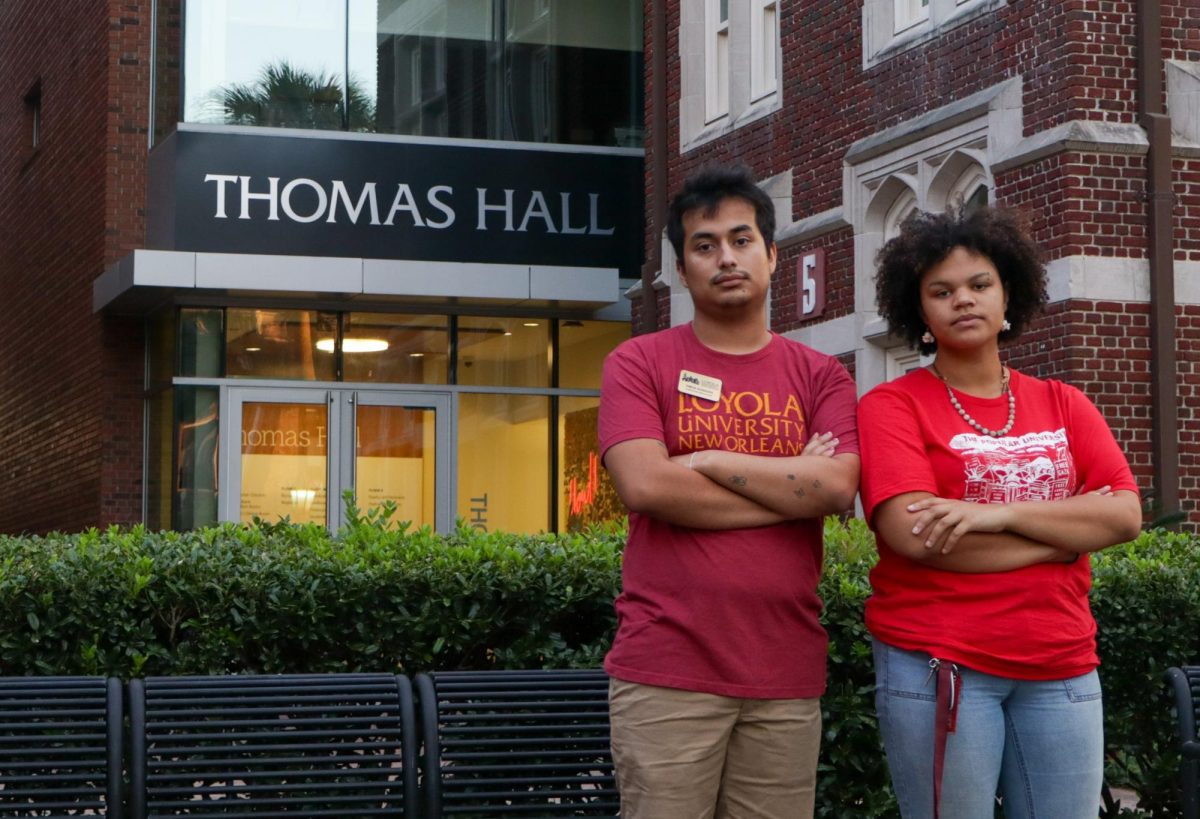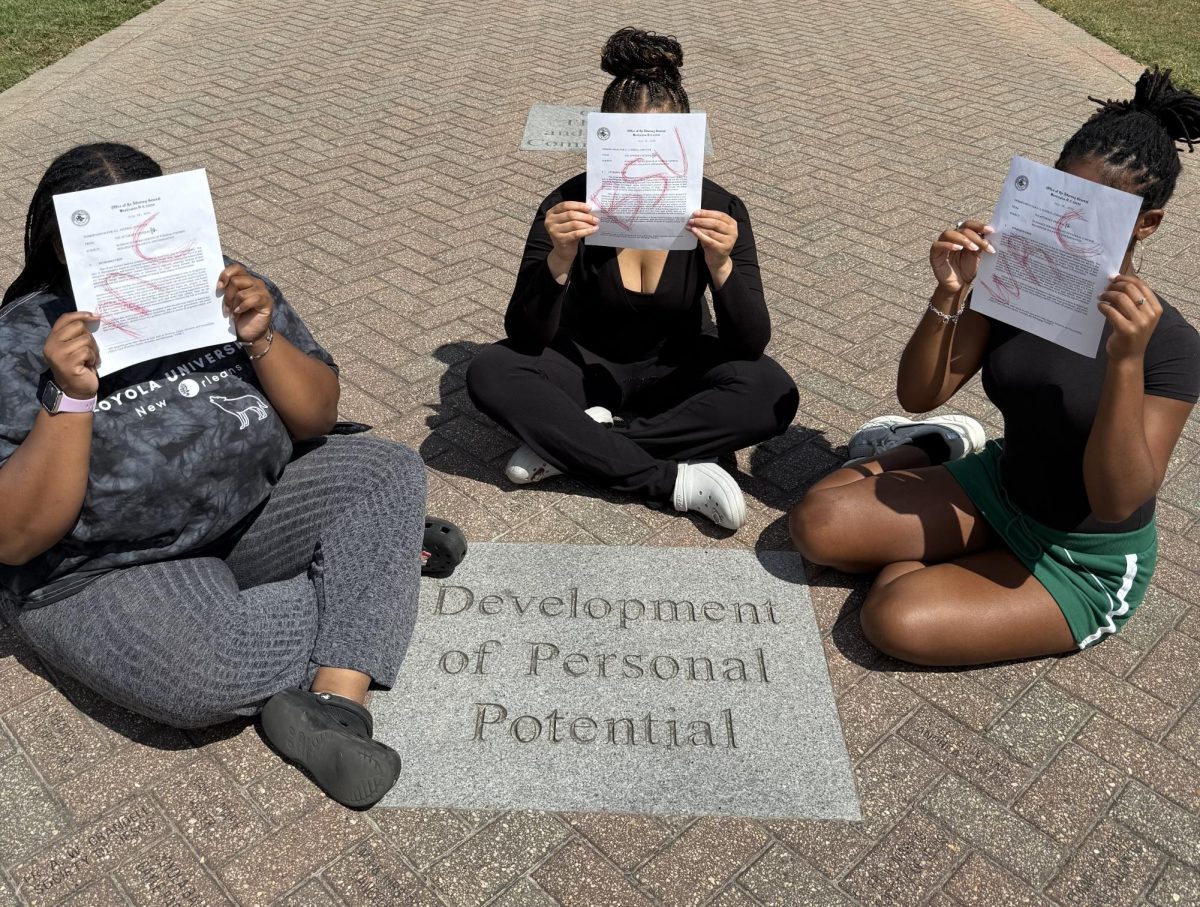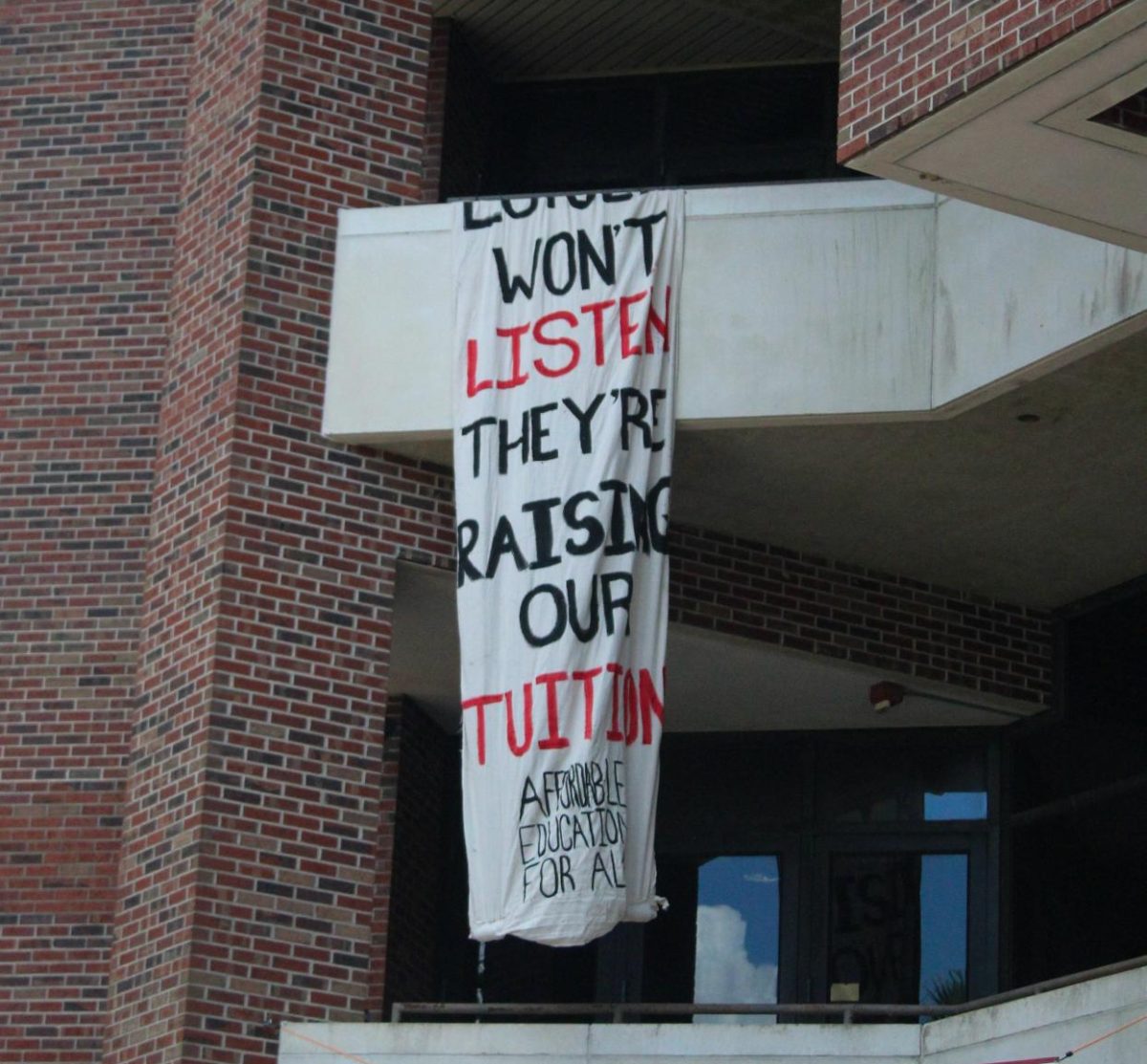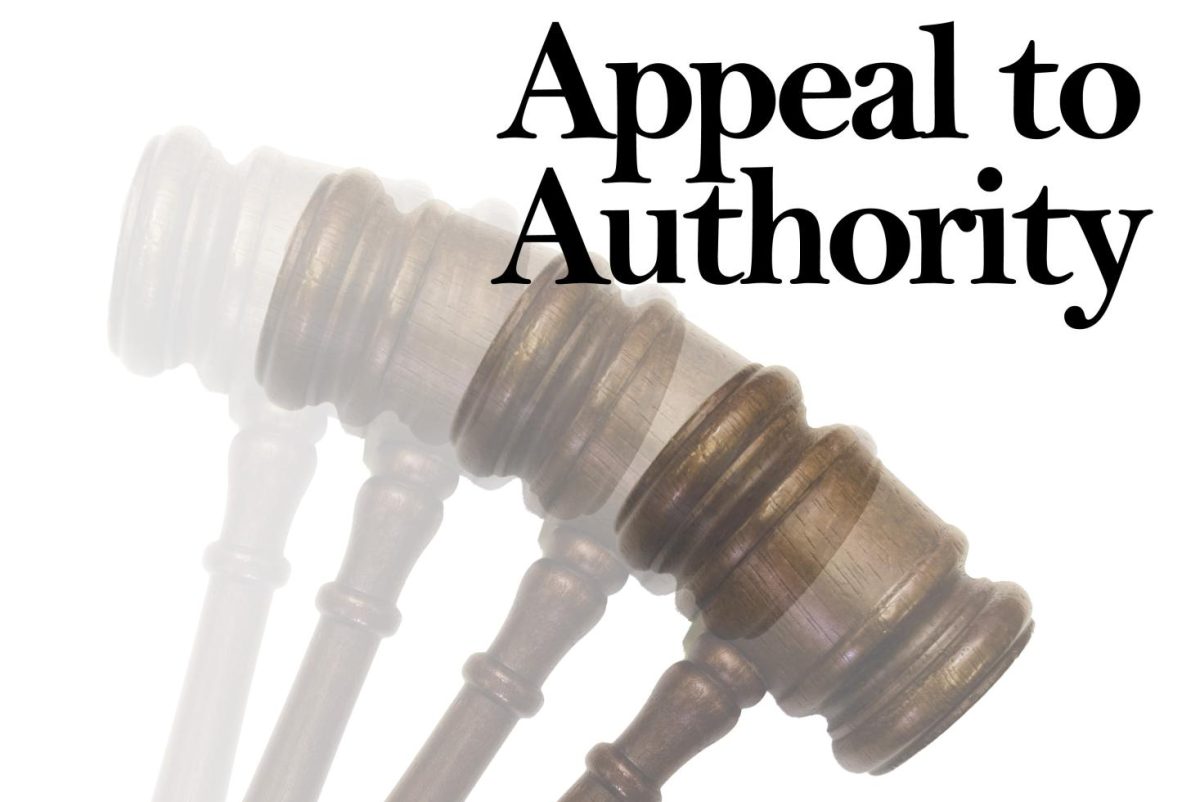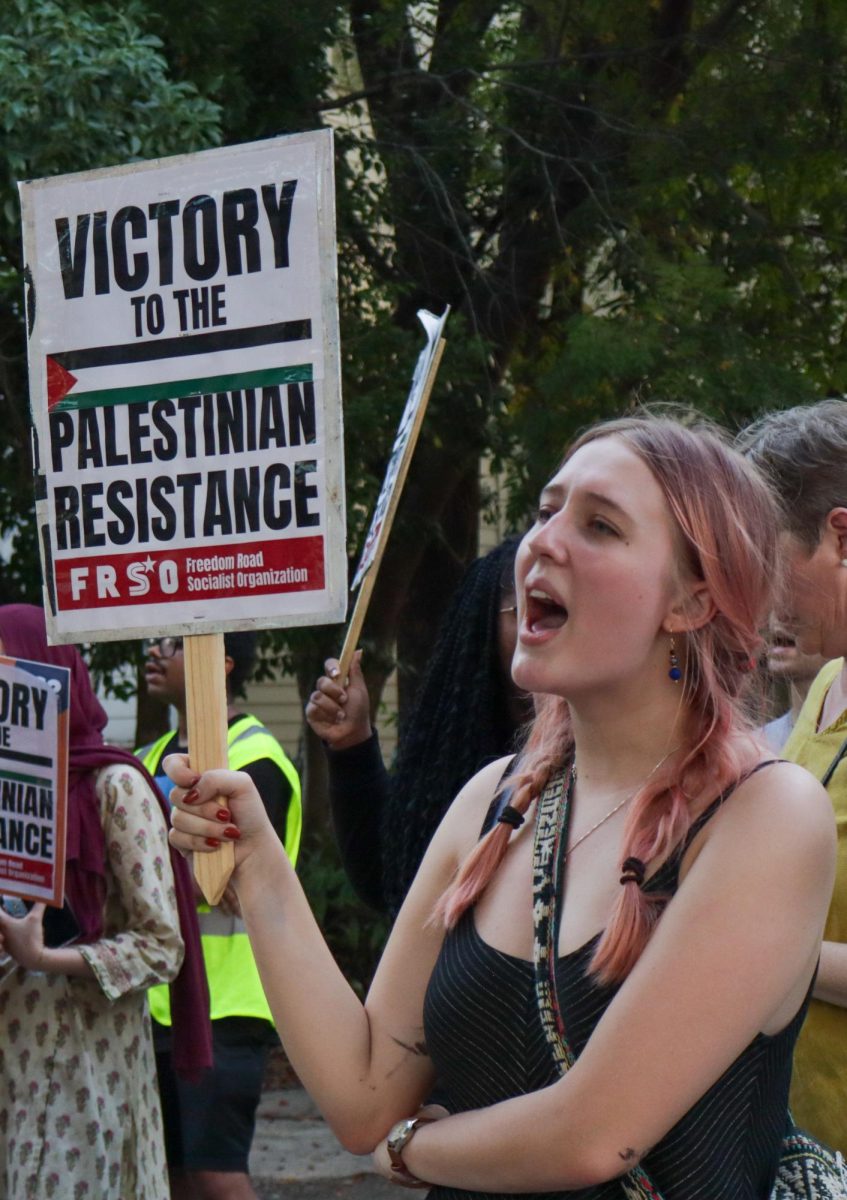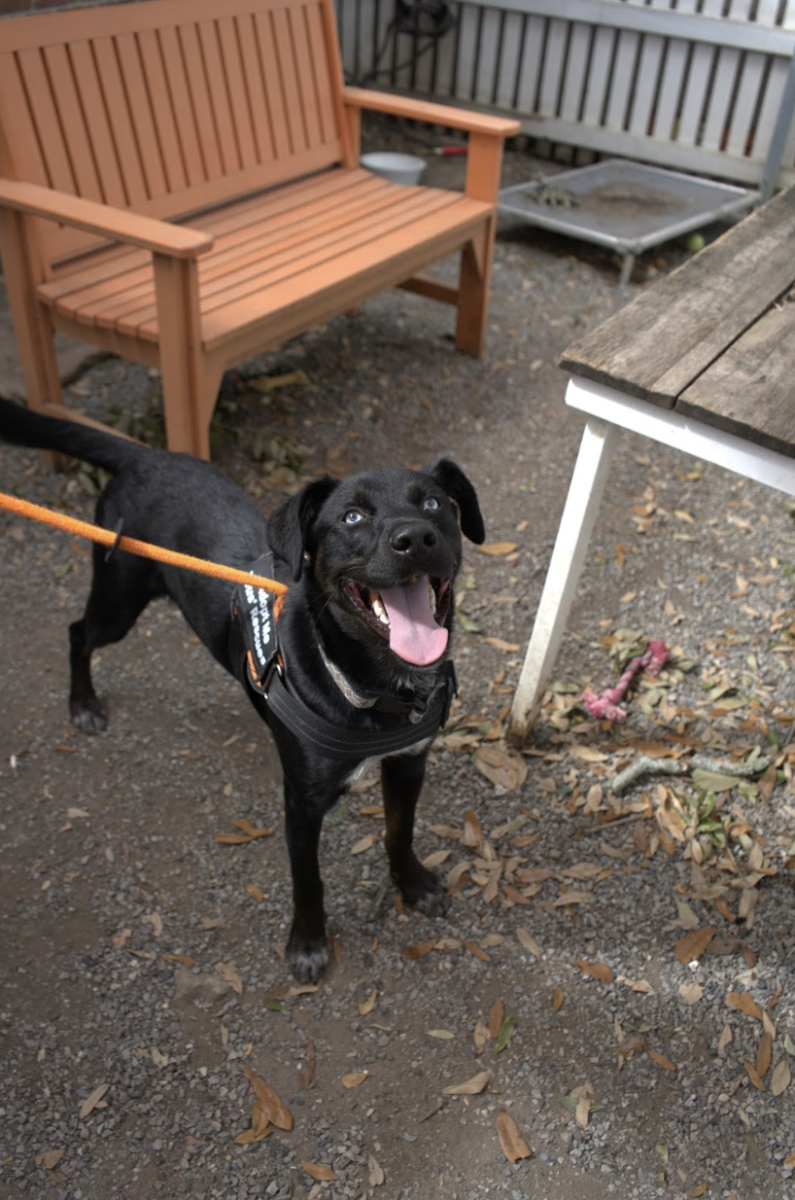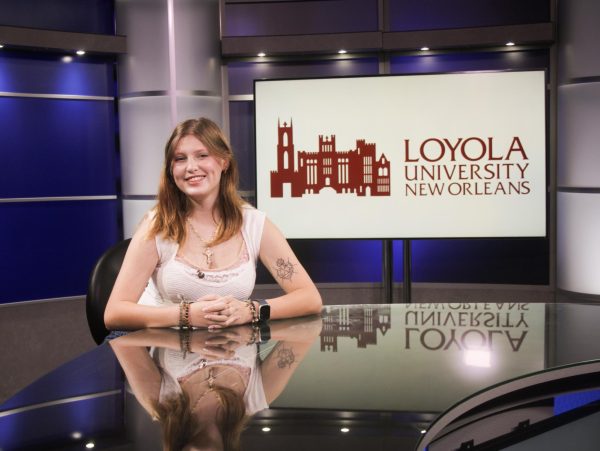Student pro-Palestine protests led to Loyola having two fewer student ambassadors. The students contend they were forced out. The university says they resigned. The one clear thing is they no longer work for Loyola.
Student Ambassadors are Loyola students who work within the Office of Admissions, giving tours to prospective students and families, as well as working the front desk in Thomas Hall.
Simon Bunkers, a sophomore and criminology and sociology double major, resigned from the Student Ambassador program on Sept. 19, the day after he participated in the march to university President Xavier Cole’s home. Bunkers said he believes the resignation was forced. Bunkers received an email explaining that he broke policy.
“They didn’t say what policy I broke,” Bunkers explained. “Then they said that I need to come in for a meeting.”
Juleea Berthelot, a third year sociology and psychology double major and former president of Loyola’s chapter of Students for a Democratic Society, said they were fired on July 29th after participating in the encampment on Tulane’s campus back in early May, where they were arrested.
“I thought I was kind of in the clear,” Berthelot said, referencing the nearly three month gap between the arrest until their termination.
The university and the Office of Admissions disputes Berthelot’s interpretation of the way their employment ended.
“I can confirm that two of our ambassadors that you may be referring to did submit their voluntary resignations to us. Any statement that may claim they were fired would be incorrect and untrue,” Director of Undergraduate Admissions, Harvey Werner, said.
Berthelot worked throughout the summer semester as a Student Ambassador, giving tours and working the front desk before they were called into Assistant Director of Campus Visits & Events, Paula Atchley’s office.
“She said that she really valued me as an employee and that I was really good at giving tours and I was really good at my job,” Berthelot said. “However, my participation in the protest made it to where she could no longer have me on the team.”
The former ambassadors said they believe the trouble stems from a policy that student ambassadors cannot publicly bad-mouth the university.
“I can understand where they’re coming from. I don’t think it’s an unreasonable policy that as a tour guide, you shouldn’t be talking bad about the university. I understand, but you should be able to tell the truth,” Berthelot said.
Berthelot said they were confused as to why they were in trouble following their participation in the encampment. According to Berthelot, the Office of Admissions kept track of which ambassadors had the highest retention rates of given tours.
“I had a really good success rate, like students that had tours with me were most likely going to come to the school,” Berthelot said.
Based on what happened to Berthelot, Bunkers opted to resign before his meeting.
“It’s either you quit or we fire you, so you either go out with your tail between your legs or you go out with no tail at all,” Bunkers said. “And I wanted to keep my tail.”
Like Berthelot, Bunkers believes what he describes as his forced resignation was unreasonable and unjustified in conflict with Loyola’s social justice values, he said.
“They very much want us to advocate Norman C. Francis, the first black graduate of Loyola, in our tours,” Bunkers said. “And these people were known for protesting and standing for what’s right. How can we as a university oppress students who do the exact same thing?”
Both students have stated that they were not specifically given what policy they violated.
“No student was fired due to protests. However, I did accept their resignations,” Atchley stated, concurring with the information provided by Werner.
This is a developing story. Follow The Maroon for updates.


